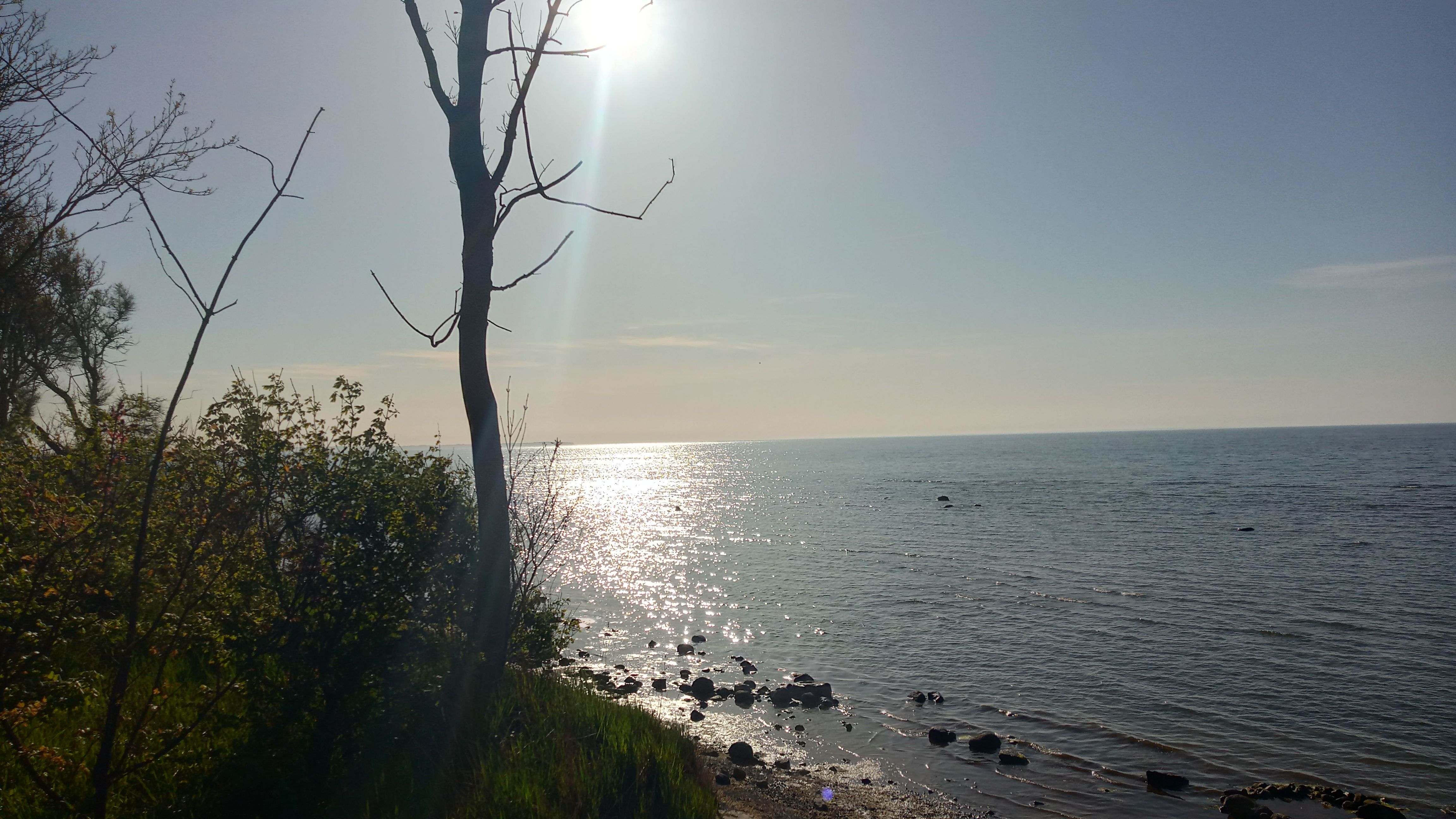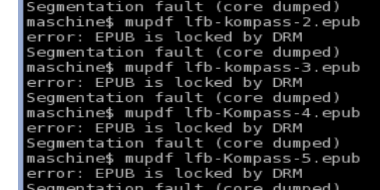testing
zu testzwecken > this is my favorite alt acc on the fedi
- 107 Posts
- 49 Comments

 0·9 months ago
0·9 months agofrom the article:
40 percent of the 33 seats in parliament have changed hands as a result of the November 20 national election.
Among high-profile incumbents losing re-election bids were fisheries and climate Minister John Silk, a 24-year parliament veteran who has been in the cabinet of multiple administrations, and Speaker Kenneth Kedi, who has been an outspoken advocate for justice for nuclear test-affected people of Rongelap, his home atoll, and the entire Marshall Islands.
Voting data provided by the electoral office shows extremely low voter turnout, based on the number of registered voters.
There is no way to determine if the number of voters listed on the Electoral Administrations eligible list of voters is accurate. But based on the available data, only 33 percent - 17,998 - turned out to vote of the 55,167 registered voters.
The postal absentee ballots were particularly problematic. With nearly half the Marshall Islands population now residing in the United States, postal absentee voters could have a major impact on the outcome of national elections. As a result of only a few ballots arriving in time to be counted, only one parliament race was changed by offshore voters.
The Electoral Administration mailed out 3,752 postal ballots to voters - over 1,600 less than one week before the deadline for voters to mail them back to the Marshall Islands - and only 1,469 returned before the December 4 deadline. But only 1,117 postal absentee ballots - 30 percent of those mailed out - were ultimately accepted and counted.

 0·9 months ago
0·9 months ago@lacouvee
you are welcome :)re: asymptote journal: it’s a small, taiwan-based project with a down-to-approach > asymptote has not published a new issue for quite some time, but the blog is very much alive, and the asymptote’s archive is a treat, so i keep waiting and stick to the blog in the meantime
re: languages: being german myself, i grew up monolingually, and began picking up some other languages only in my early teens > it absolutely broadened my horizon
 0·9 months ago
0·9 months ago@livus thank you! yevtushenko is dismissing any glorification of the soviet army here, sharply deviating from common practice in the ussr during the 1950s - “weddings” is a remarkable poem

 0·9 months ago
0·9 months agofrom the article:
The proposed Constitutional change directly concerns New Caledonia’s sensitive issue of the electoral roll, which had been “frozen” since 2007, as prescribed by the autonomy Nouméa Accord signed in 1998.
The Accord saw fit to disqualify French citizens who had not resided in New Caledonia before 1998, in a move that, at the time, was seen as a step to ensure indigenous Kanaks were not at risk of becoming a minority in their own country.
The French government’s draft Constitutional bill is described as restoring the universal voting rights of French citizens, especially with regards to local elections such as the election of members of the Congress (territorial parliament) as well as the three provincial assemblies.
It is believed that due to the previous restrictions, some 20,000 French citizens (most non-Kanaks) residing in New Caledonia are being denied their voting rights for these local elections.
The Paris government was also invoking France’s adherence to world-recognised democratic universal rights as enshrined in its Constitution.
France has attempted, for the past year, to get all of New Caledonia’s local political parties to come to the discussing table and come up with a new agreement on New Caledonia’s political future after the Nouméa Accord, signed in 1998, is now regarded as having expired.
But to date, despite several attempts on the part of the French government and five trips by French Home Affairs and Overseas minister Gérald Darmanin, one component of the pro-independence FLNKS umbrella, the Union Calédonienne (UC), even though it has participated in discussions at some level, is still refusing to join inclusive talks.
One of the main figures in the pro-French part of the political spectrum, Sonia Backès (head of the “Les Loyalists” party) said the French constitutional reform plan was “very good news”.
“This means New Caledonia will go from a transitional to a permanent status in the French Constitution”, she said.
But she regretted that a minimum of ten years (“too long”, she said) was now to become the rule to become an eligible voter.
On the side of the pro-independence FLNKS front, its current “animator”, Victor Tutugoro (who also leads the moderate pro-independence Union of Melanesian Parties -UPM-, one of the members of FLNKS), said he was “not surprised” but that his priority was now to find a “local agreement” between “local political stakeholders” which could be a successor to the Nouméa Accord.
He however expressed doubts on whether the Constitutional Amendment will get sufficient support in the French Congress (three-fifths of the votes are required).
“Things are a bit difficult if you look at the concept of government majority. Will the French government muster enough support? We don’t know.”
#newCaledonia #france #pasifika #colonialism #constitution #elections #independence
 0·9 months ago
0·9 months agowhat can i say?
i am a sucker for bibinur salykova’s playfulness!
she is a young poet from kazakhstan > see also https://www.angime.com/bibinur-salyknova-cv > and her name is salykova - everything else is utterly wrong …
sry for not being able to provide the translator’s name > internet is too bad here, hence i could not open the original pdf at https://tabjournal.org/vol-10-2022 > believe me, i would have loved to open that file because, ummmh, yes: bibinur salykova

 0·9 months ago
0·9 months agofrom the article:
The reporters found 1,482 areas in the Apurinã Indigenous land registered as NFTs, which are digital certificates of ownership of unique (non-fungible) assets such as works of art, collectibles or properties. In this case, buyers make virtual purchases of plots in the territory, which they can sell to others anytime. It works like a stock exchange. NFT prices vary according to the prices of encrypted virtual money — cryptocurrencies — and the value of the environmental asset that is supposed to be contributing to preserve the forest. At least 665 clients purchased forest land plots and continue trading them as NFTs on specialized platforms.
According to Nemus, NFT holders can navigate the area they acquired and detect wildlife or environmental threats, monitoring and auditing the conservation of the area.
Nemus’ businesses are associated with European investors and ASF BRAZIL LTD, a London-based holding company founded by Italian businessman Maurizio Totta. In Brazil, Totta is a partner of Pedro Ruhs da Silva and Flávio Meira Penna, who appear as owners of Nemus and other companies in partnership with ASF. The group’s main investments in the Amazon are focused on timber extraction, with the recovery of bankrupt or indebted companies.
In an interview on American TV in the Break It Down Show, Nemus’ founder Meira Penna said the Indigenous people “are sort of like squatters” in the areas acquired by Nemus, but he stated that “they’ll live there forever” and “they will jump to the digital world very quickly.”
In the video, which can be seen in full on YouTube, the businessman details his NFT project in the area claimed by the Indigenous people. The deal is meant to raise up to $5 million, with NFTs selling for $150-$51,000. With that money, Nemus would buy more areas in the region to launch more NFTs, as explained in the video.
In addition to Manasa, Meira Penna also acquired a timber company, Laminados Triunfo, in Acre state and exported the product to the U.S. In April, the company was the target of a “timber laundering” investigation by the Brazilian Institute of the Environment and Renewable Natural Resources (IBAMA).
ILO Convention 169 provides for the right to consultation on any project that interferes with Indigenous lands. Regardless of whether or not the territory has already been officially recognized, the entire recognized Indigenous community must be aware of what is being proposed and has the right to approve the project or not. The matter must be discussed internally by the Indigenous people, with the adoption of a consultation protocol that allows everyone in the territory to have access to information about the projects.
To the Prosecution Service, Nemus said the property was not on “actually demarcated Indigenous land,” and therefore the company’s understanding was that “no article of ILO 169 convention on consultation applies.”
In the same document from August 2022, Nemus said it was not yet developing economic activities in the area. However, at the time, the company had already launched its NFTs on the market, for which sales began in March 2022.
#amazonas #brazil #nft #indigenous #indigenousRights #landgrab #colonialism
@itsaj26744
misskey and its cutlery set of forks all have rss support > among them, rss support of firefish and iceshrimp could easily be labeled “rss eye candy of the fediverse”rss feeds on the *keys follow the model:
https://instance.name/@user.rssatom feeds are also available:
https://instance.name/@user.atom

 0·9 months ago
0·9 months agofrom the article:
These policemen do all the planning and then engage the ‘wanted boys’ to carry out the main criminal holdups … even the firearms belong to them," the leaders claim in a petition sent to the government.
Mike Piau is one of the “wanted boys”.
He said he was bashed up and arrested by police in 2020 when he refused to take part in a robbery.“They almost shot me with a pistol. When I didn’t do what they asked, they turned on me and arrested me and beat me up,” he told the ABC.
Mr Piau told the ABC he had been approached by police because he was an influential resistance fighter during the Bougainville crisis from 1988 until 1998.
At the time, local dissatisfaction with a major mining project sparked an armed uprising against the PNG government in which 20,000 people died.
Other “wanted boys” the ABC has spoken with say they are now hiding out in villages to escape arrest.
Mr Piau said the alleged police misconduct could hurt Bougainville’s independence bid.
“These sort of men will create bigger problems which will impact our road to independence,” he told the ABC.Despite the 2019 referendum, which was non-binding, Bougainville’s fate lies in the hands of the PNG parliament, which is yet to make a decision on the issue.
The Bougainville Police Service still operates under the auspices of the Royal Papua New Guinea constabulary and is largely dependent on funding sort of coming through the PNG government system," he said.
Dr Dinnen said there was some community mistrust in the police following the Bougainville crisis.
When tensions began to break out in the late 80s, the PNG police deployed mobile squads to the region.
They were later accused of serious human rights abuses.“There’s a kind of memory of that other kind of policing, that Bougainvilleans did not want to duplicate or replicate,” Dr Dinnen said.
Dr Peake said Australia had a role to play in training the PNG police, which it has done for decades.
#bougainville #png #PapuaNewGuinea #pasifika #violence #corruption

 0·9 months ago
0·9 months ago@mateomaui
chinese demand for wood has never cared for any regulations, especially not in the pacific region - it’s a catastrophe …

 0·9 months ago
0·9 months ago@mateomaui it’s grotesque, isn’t it?

 0·9 months ago
0·9 months agofrom the article:
He said that they believed that more than 10,000 round or unmilled logs are currently stocked at a former slipway at Palekula.
The land owner said forestry department failed to measure the logs after they have cut down by the Chinese company for transportation to Palekula where they are stocked.
He said to know the price of a log the department has to measure it to evaluate the price but so far nothing has been done.
“Heaps of logs are currently stocked at Palekula and to remove them to take their measurement, it will take more than a month. This is the problem of the company and the department to short it out. For us the land owner we just want the payment of our trees,” said the land owner.
He said under the agreement signed between them, the Chinese company and the department, it was agreed to pay 2500 vatu per cubic metre.
@Chozo
this is the english machine translation of naskya’s post:Even if you ask me when the next version will be out, I don’t know.
one week ago, naskya stated in another post:
Firefish v1.0.5 を出すために必要にゃ雑用は 2 日くらい前に睡眠時間を捧げてほとんど片付けたのであとは Kainoa さん次第です
english machine translation:
I devoted my sleep time to do most of the chores needed to release Firefish v1.0.5 about 2 days ago, so the rest is up to Kainoa.
source: https://post.naskya.net/notes/9n8d2h0qq12bdzm1 #firefish

 0·10 months ago
0·10 months ago@LollerCorleone
modi and his allies will use this law to spy on everyone perceived as enemy

 0·10 months ago
0·10 months ago@skepickle any reasons for downvoting my threads?
look: your magazine has virtually no contributors, so downvoting is discouraging …
 0·10 months ago
0·10 months ago@livus thank you ✨
 0·10 months ago
0·10 months ago@livus
i admire the way charlotte mew poses questions! thank you for this poem!

 0·10 months ago
0·10 months ago@Kierunkowy74
i thought that the iceshrimp devs had rewritten their mastodon api compatibility layer, and that iceshrimp works fine with masto clients … it doesn’t?

 0·10 months ago
0·10 months agofrom the article:
Bougainville is seeking independence from Papua New Guinea, based on the overwhelming result of the referendum on independence held four years ago. Almost all - 97.7 percent - of Bougainville voters chose independence.
Last month, PNG’s Minister for Bougainville Affairs Manasseh Makiba told parliament the referendum results were non-binding, and it is only the national parliament that has the authority to determine the fate of the referendum results.
He told parliament it meant the referendum result would not take immediate legal effect until the national parliament approves or ratifies it.This was a red rag to Massatt.
He said there is nothing in the Peace Agreement or the Constitution that said the referendum is non-binding.That’s correct but it is also the case that the word binding is not used in either document.
As well, discussion on the matter during the writing of the Bougainville Peace Agreement (BPA) nearly 25 years ago led to a compromise that the referendum would go ahead on the condition it was non-binding, even if this is not spelled out.





part 2: https://www.samoaobserver.ws/category/op_ed/107532
#samoa #fiji #png #papuaNewGuinea #pasifika #medicalTraining